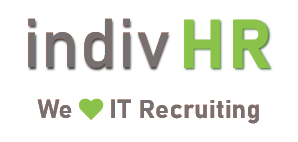ServiceNow is a cloud-based platform that supports companies in optimising their business processes. ServiceNow offers numerous possible applications, particularly in the area of human resources management (HRM). In this article, we will look at the various areas of application of ServiceNow in HR and explain the benefits for companies and employees.
Possibilities of using ServiceNow in HR
ServiceNow offers many functions and applications that can be used in HR. Some of the most important are
- Employee self-service: Employees can access information and make enquiries via a self-service portal. This reduces the workload for HR employees and improves employee satisfaction.
- Onboarding: ServiceNow enables the automated and structured induction of new employees. The approval of documents and the assignment of tasks can also be automated.
- HR Service Delivery: the tool offers a standardised service portal through which employees have access to all HR services. Requests and authorisations can be tracked automatically and in real time.
- Performance Management: ServiceNow enables automated evaluation of employee performance and supports the goal setting process and feedback between employees and managers.
- Talent management: it also enables the management of talent within the organisation. This includes the management of training, the identification of candidates for promotion and the management of succession plans.
What to look out for when introducing ServiceNow
There are some important factors to consider when implementing the solution:
- Process design: Before implementation, it is important to analyse the HR processes and ensure that they can be mapped in ServiceNow. ServiceNow offers a workflow engine that enables the automation of processes.
- Data migration: It is important to ensure that all relevant data is migrated from the old HR system to ServiceNow. Attention should be paid to the quality of the data in order to have a clean data basis for ServiceNow.
- Training and support: Employees and managers must be trained in the use of ServiceNow. It is also important to have a support structure that can resolve questions and problems quickly.
- Integration with other systems: it should be integrated into other systems such as the ERP system or the CRM system. This allows data flows to be optimised and redundancies to be avoided.
Advantages for companies and employees
By using ServiceNow, companies can achieve many benefits. Some of the most important are
- Increased efficiency: By automating HR processes, companies can increase efficiency and reduce the time spent on manual tasks. This also means a reduction in costs for HR departments.
- Employee satisfaction: By using self-service portals and a standardised HR service portal, employees can access information and services quickly and easily. This improves employee satisfaction and reduces the need for direct contact with HR employees.
- Compliance: ServiceNow offers a central database in which all HR-related information can be stored. This enables companies to ensure that they comply with legal requirements and regulations.
- Reporting: ServiceNow also offers comprehensive reporting functionality. This allows companies to quickly and easily create reports and analyses on HR topics.
The use of ServiceNow also offers advantages for employees. With access to self-service portals and the HR service portal, employees can quickly and easily access information and make enquiries. This allows them to concentrate on their actual work and not spend so much time searching for information and making enquiries. ServiceNow can also improve the induction process for new employees, as it can be more structured and efficient.
ServiceNow offers companies many opportunities to optimise and automate their HR processes. Attention should be paid to process design, data migration, training and support as well as integration with other systems. By using ServiceNow, companies can achieve efficiency gains, improved employee satisfaction, compliance and improved reporting functionality. Employees benefit from quick and easy access to information and services as well as improved familiarisation.





